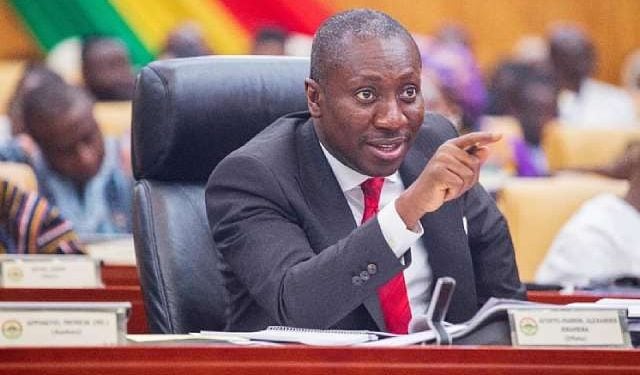The controversy surrounding the missing Electricity Company of Ghana (ECG) containers has ignited a debate about accountability and systemic inefficiencies within state-owned enterprises. Alexander Afenyo-Markin, Minority Leader and former ECG Board Chair, has urged politicians to transcend partisan divides and collaboratively address the root causes of such crises. He emphasized that politicizing the issue, by attributing blame solely based on party affiliation, hinders progress and weakens the system as a whole. Afenyo-Markin’s call for a bipartisan approach underscores the need for a unified front in tackling the challenges plaguing state institutions and ensuring better service delivery to the Ghanaian public. He believes a thorough investigation and systemic overhaul are crucial to preventing similar occurrences in the future.
The disappearance of over 1,300 containers filled with essential ECG equipment from the Tema Port has raised serious concerns about potential mismanagement and corruption within the organization. The revelation of discrepancies in the number of uncleared containers further intensifies suspicions and highlights the need for a comprehensive audit to determine the extent of the loss and identify those responsible. Energy and Green Transition Minister John Abdulai Jinapor has pledged to recover the missing containers or their equivalent value, signaling the government’s commitment to holding individuals accountable for their actions and safeguarding public resources. This commitment to accountability resonates with Afenyo-Markin’s call for a systemic solution and suggests a potential avenue for bipartisan collaboration.
Afenyo-Markin’s willingness to support Minister Jinapor in a genuine overhaul of the system demonstrates a commitment to addressing the core issues contributing to such recurring problems within state-owned enterprises. This offer transcends partisan politics and focuses on the greater good of improving the efficiency and effectiveness of these critical institutions. His emphasis on structural inefficiencies within SOEs, rather than simply pointing fingers, highlights the need for a deeper examination of the systemic flaws that allow such situations to arise. This approach seeks to identify and rectify the underlying weaknesses within the system to prevent future occurrences, rather than simply addressing the immediate crisis.
The recurring crises within state-owned enterprises point to a larger issue of structural deficiencies and potential governance failures. Afenyo-Markin highlights the need to move beyond simply assigning blame and delve into the systemic issues that create an environment conducive to such events. These could include inadequate inventory management systems, lack of transparency in procurement processes, and insufficient oversight mechanisms. Addressing these broader structural issues requires a comprehensive review of operational procedures, strengthening internal controls, and implementing robust accountability frameworks across all state-owned enterprises. This holistic approach aims to create a more resilient and efficient public sector that can effectively deliver essential services to the citizens of Ghana.
The politicization of institutional problems often serves as a roadblock to finding sustainable solutions. The tendency to engage in partisan blame games diverts attention from the core issues and impedes the development and implementation of effective solutions. Afenyo-Markin argues that a shift in focus towards constructive dialogue and collaboration is essential for fostering a more productive environment where solutions can be implemented effectively. This requires a concerted effort from all stakeholders, including political leaders, policymakers, and the public, to prioritize the long-term interests of the nation over short-term political gains.
Afenyo-Markin’s call for a bipartisan approach to resolving the ECG container crisis and addressing the broader challenges within state-owned enterprises sets a crucial precedent for future collaborations. By focusing on systemic solutions rather than partisan blame, he advocates for a more effective and sustainable approach to governance. This approach emphasizes the importance of transparency, accountability, and continuous improvement within public institutions. It also highlights the role of politicians in promoting constructive engagement and collaborative problem-solving, ultimately striving for a more efficient and accountable public sector that serves the best interests of the Ghanaian people. This forward-looking perspective underscores the importance of learning from past mistakes and working together to build a stronger and more resilient system for the future.


